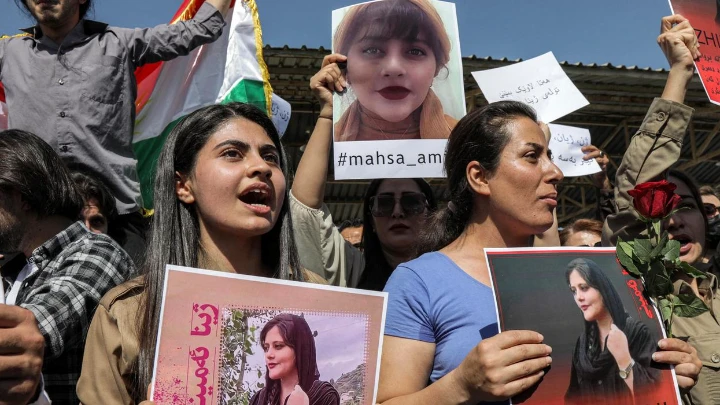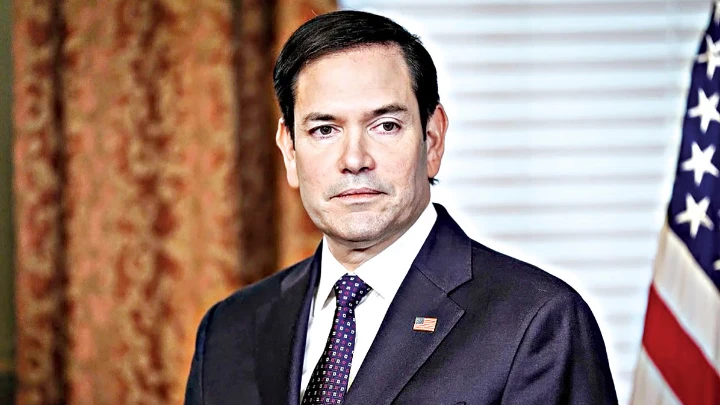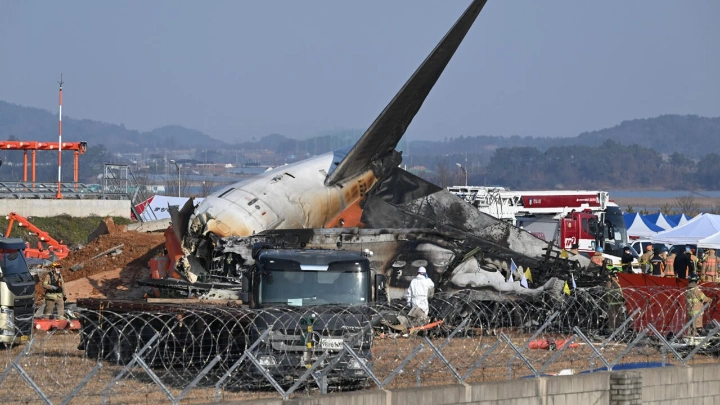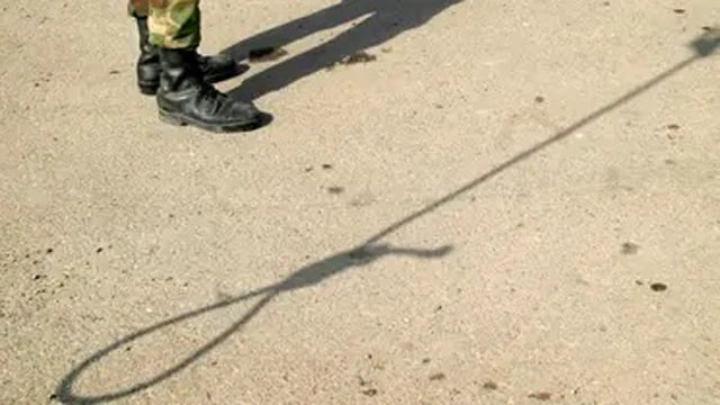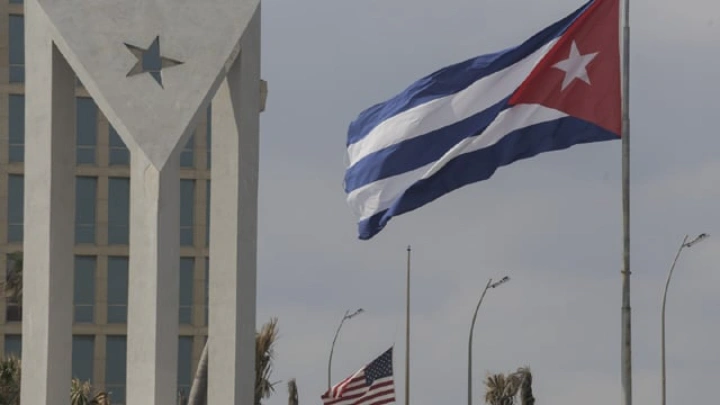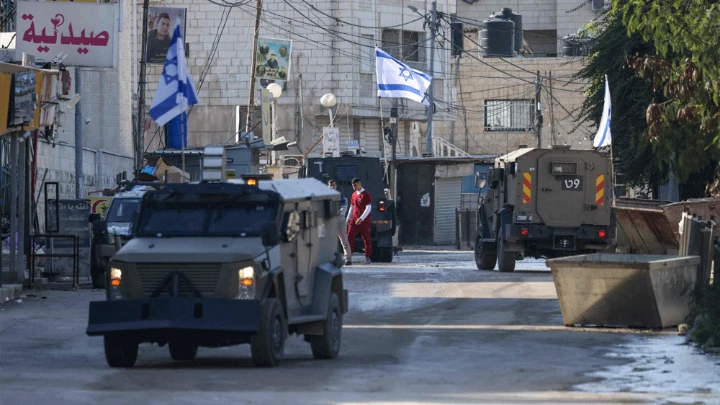Northern Iraq: A brand-new basis for the Iranian protest movement?
Northern Iraq: A brand-new basis for the Iranian protest movement?
Shining BD Desk || Shining BD
Iran recently bombed sites in northern Iraq, saying "terrorists" there were behind Iran's ongoing anti-government protests. What's the truth?
Terrorist groups based over the border in Iraq have incited peaceful protesters and have "nefarious terrorist goals," Iran's delegation to the United Nations wrote in a dramatic letter to the UN Security Council in mid-October.
The letter was sent after Iran had bombed four areas of neighboring Iraq, sending more than 70 missiles over the border in what was the country's biggest cross-border strike since the 1990s.
As a result, an estimated 16 locals in northern Iraq were killed, including a child, and almost 60 wounded, with hundreds more displaced. Human Rights Watch condemned the attacks, saying Iran had struck places where there was no military activity, including a school and some residential areas.
No protest leadership in Iraq
But it is also true that there are anti-Iran militias and political parties in Iraq. Do they really have something to do with the anti-government protests still going on in Iran?
"There are probably some people among the protestors that sympathize with political parties, but there is no protest leadership that's affiliated with any of them," Faraz Firouzi, a human rights lawyer and spokesperson for Norway-based Kurdish-run group the Hengaw Organization for Human Rights, told DW. "It's mostly the younger generation — women, students, teenagers — who have been the leaders out on the streets. So there is no clear-cut evidence in support of the regime's allegations about a revolution being plotted from inside Iraq."
This is all part of the Iranian government trying to "export" its current political problems, confirmed Kamal Chomani, Kurdish journalist and fellow at the Kurdish Peace Institute. Iran has been trying to blame the protests on outside influences, as well as its own Kurdish ethnic minority, he pointed out.
 Iran bombed political party headquarters in Iraq, claiming they were "terrorist" basesImage: Fariq Faraj/AA/picture alliance
Iran bombed political party headquarters in Iraq, claiming they were "terrorist" basesImage: Fariq Faraj/AA/picture alliance
There are around 10 million Iranians of Kurdish ethnicity in Iran, many of them living in the western Kurdistan province. It was the death of a young Iranian Kurdish woman, Jina Mahsa Amini, while in the custody of police in Tehran, that sparked Iran's ongoing nationwide protests, which began at the 22-year-old's funeral in her hometown of Saqez in Kurdistan. The protests' rallying cry – "women, life, freedom" – actually has its roots in the movement for Kurdish independence.
According to Hengaw, the security crackdown on protesters has been particularly harsh in Iran's Kurdish-dominated areas, where 62 protesters have been killed and 4,000 people injured to date.
'Exporting' Iran's problems to Iraq
The Kurdish people, estimated to number around 30 million altogether, are one of the largest ethnic groups in the world without their own country. Many Kurds are native to the region where four countries — Iran, Iraq, Syria and Turkey — meet, and Iranian and Iraqi Kurds share a border, languages, and culture.
What happens in the Kurdish regions of Iran always has an impact on Kurdish regions in Iraq, said Chomani. "And If Iran wants to 'export' this problem, then Iraqi Kurdistan is the ideal place," he told DW. "The [Iraqi] Kurdish government is too weak to express a strong opinion about it, and the Iranians already have significant influence over the Iraqi federal government [in Baghdad]."
In some ways, the problem may be exporting itself. "We were informed that multiple Iranian dissidents fled the country and sought refuge in Iraq's Kurdistan region," confirmed Hengaw lawyer Firouzi. "Although an exact number is not at hand, we estimate there are dozens of these refugees now in Iraqi Kurdistan."
 Iranian-Kurdish fighters for Kurdish autonomy live and train in the Iraq-Iran border areasImage: rojpress
Iranian-Kurdish fighters for Kurdish autonomy live and train in the Iraq-Iran border areasImage: rojpress
Reports from the region suggest a greater military presence than usual at the border crossings into Iraqi Kurdistan and anybody who isn't traveling for work is treated with suspicion. If more dissidents are crossing into Iraqi Kurdistan, they are probably doing so via long-established, illicit paths between the two countries' long, porous and mountainous border.
Decades in exile
In fact, Iranian Kurds have been seeking safety in Iraq's Kurdish region for decades now, after Iranian Kurds mostly boycotted the 1979 referendum that established the Islamic republic.
There are over 10,500 Iranian Kurds in Iraqi Kurdistan registered as refugees with the United Nations' refugee agency, but likely many more live there unregistered.
Iranian Kurdish political organizations that oppose the Iranian regime also have offices in Iraqi Kurdistan, where they are tolerated as long as they don't cause political problems. These include the Democratic Party of Iranian Kurdistan, or KDPI, and Komala. Both boycotted the 1979 referendum and promoted Kurdish rights when Iran was more democratic.
These parties also have military wings, some of which have undertaken missions against the Iranian government on the Iranian side of the border. One of the more militant groups, the Kurdistan Free Life Party, or PJAK, reportedly has around 3,000 fighters based in the mountains on the Iraqi side of the border.
 The headquarters of the Komala group in Sulaymaniyah, in Iraqi KurdistanImage: Shwan Nawzad/AFP/Getty Images
The headquarters of the Komala group in Sulaymaniyah, in Iraqi KurdistanImage: Shwan Nawzad/AFP/Getty Images
It was against these groups that Iran says it launched its rockets, drones and accusations. But, as the Kurdish Peace Institute's Chomani told DW, "this just doesn't make sense. How did the Iranian Kurdish parties become so strong that they were able to mobilize the whole country?"
As for the Iranian Kurdish dissidents, it's unlikely that enough of them arrived in Iraq to make much of a difference to any fighting force.
Most of them don't even want to stay in Iraq, Firouzi noted. Life in Iraqi Kurdistan is often hard for Iranian Kurds, who have difficulty obtaining long-lasting official residency, receiving benefits or finding work. Security is also a problem: There are multiple reports of Iranian dissidents being assassinated, or kidnapped and taken back over the border.
That's why Firouzi argues that "the role played by Kurdish opposition groups in Iraq has been exaggerated by the Iranian regime. It is to justify unlawful use of force against [Iranian] Kurdish protesters at home and to send a fake message to neighboring countries about how they cause instability."
Bigger picture
There may also be another reason for Iran's accusations and bombing of Iraq, according to Tamer Badawi, an independent analyst who researches Iraqi paramilitary groups.
"Apart from protests, there are reasons to see why the latest round of Iranian attacks is also linked with Iraq's internal dynamics," Badawi told DW.
It allows the Iranian government to put more pressure on Kurdish politicians in Iraq, he explained. Even before the protests started, there had been an increase in lethal attacks on Iraqi Kurdish areas from Iran, Badawi noted.
The recent political impasse in Baghdad, where Iraqi Kurdish politicians sided with a local candidate against Iran-backed parties, may also play a part, the analyst added. It is Iran punishing Kurdish politicians for supporting that candidate and "putting [them] under pressure to ensure compliance with the new rules in Baghdad, set by Iran's allies," Badawi said.
In launching more attacks on what it says are its enemies in Iraq, Iran is following in Turkey's footsteps.
 In July this year, Turkish planes bombed an Iraqi tourist resort, killing eightImage: Michael Kuenne/ZUMA Press/picture alliance
In July this year, Turkish planes bombed an Iraqi tourist resort, killing eightImage: Michael Kuenne/ZUMA Press/picture alliance
Turkey has conducted illegal airstrikes with impunity inside Iraq for decades now, targeting Kurdish militias that Ankara says threaten Turkey's security, like the Kurdistan Workers' Party, or PKK. Up until July this year, Turkey has launched around 190 Turkish airstrikes in Iraq.
Iran has not launched nearly that many. But, observers warn, Iranian cross-border attacks may well continue. Iran has been trying for some time to get Iraqi Kurdish politicians to better control the Iranian Kurdish political parties, perhaps by gathering them in camps, disarming them, or sending them to other countries.
So far, Iraqi Kurds have refused to expel Iranian dissidents, but if more Iranians start arriving, this may become a bigger problem.
"More bloody suppression could lead to more people moving into Iraqi Kurdistan," Firouzi noted.
"And given the ongoing protests and their violent suppression, it is also more probable that the [Iranian] regime would attack Iraqi-based Kurdish opposition groups again," he cautioned, "most likely on a larger scale."
By DW
Shining BD

